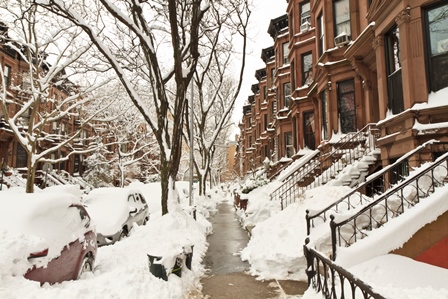FOR IMMEDIATE RELEASE
ACS News Service Weekly PressPac: November 19, 2014
As winter approaches, switching to cleaner heating oils could prevent health problems
"The Public Health Benefits of Reducing Fine Particulate Matter through Conversion to Cleaner Heating Fuels in New York City"
Environmental Science & Technology
With temperatures dipping, homeowners are firing up their heaters. But systems that require heating oil release fine particles outside that could have harmful health effects. Regulations to curb these emissions in New York City, however, could save hundreds of lives, a new study has found. The report in the ACS journal Environmental Science & Technology may have ramifications for the entire northeast, the country’s largest consumer of heating oil.
Iyad Kheirbek and colleagues note that when some people breathe in fine particulate matter from the air, they suffer from increased airway inflammation, reduced lung function and changes in heart rhythm and blood pressure. In New York City alone, this type of air pollution has been linked to more than 2,000 premature deaths, close to 5,000 emergency room visits for asthma and 1,500 hospitalizations for respiratory and cardiovascular disease each year. To address the problem, the city and New York state have put in place a multi-year plan to dramatically lower fine particulate matter from heating oil emissions by mandating a switch to cleaner oils. Other northeast states are set to follow suit. Kheirbek’s team wanted to see what effects the new regulations might have.
The researchers used a computer model to analyze partial and complete phase-outs of various heating oils. They estimated that in New York City, a complete phase-out could prevent about 290 premature deaths, 180 hospital admissions for respiratory and cardiovascular disease and 550 emergency room visits for asthma each year. They also found that emissions reductions could benefit residents of high-poverty neighborhoods the most.
The authors acknowledge funding from New York City.


